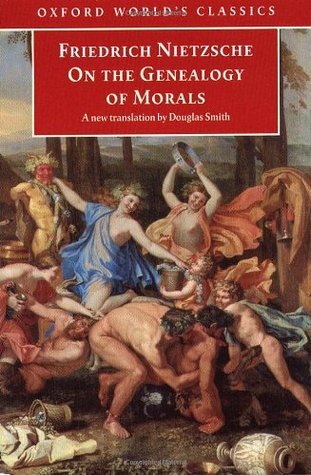
Basic Writings of Nietzsche
Book Description
Unleash the fire of thought and challenge the boundaries of existence with 'Basic Writings of Nietzsche.' This collection plunges into the depths of philosophy, unearthing audacious ideas that shake the very foundations of morality and society. From the declaration of the Übermensch to the haunting echoes of eternal recurrence, each essay crackles with raw brilliance and unflinching courage. Nietzsche's profound insights ignite a clash between tradition and the quest for individuality, leaving readers questioning everything they know. Can humanity rise above its limitations, or are we destined to repeat the past? Discover the confrontation that awaits the mind.
Quick Book Summary
"Basic Writings of Nietzsche" is a seminal anthology capturing Nietzsche's revolutionary philosophy. Drawing from his most influential texts, the collection presents core themes including the rejection of traditional morality, the concept of the Übermensch (Overman), critique of religion, and the doctrine of eternal recurrence. Nietzsche urges readers to question societal norms, embrace individual creativity, and forge new values independent of inherited dogmas. His aphoristic, provocative style challenges conventions and explores the tension between human greatness and mediocrity. Intense, poetic, and radical, these writings transformed the landscape of modern thought and continue to inspire debates on ethics, purpose, and the possibilities for self-overcoming. Nietzsche’s insights offer both a bold critique of the present and an impassioned call to shape the future.
Summary of Key Ideas
Table of Contents
Revaluation of Morality and Values
Nietzsche’s attack on traditional morality forms the backbone of his philosophy. He critiques inherited ethical frameworks—especially Christian values—arguing they suppress individual creativity and foster mediocrity. Nietzsche contends that so-called universal morals are often tools of control, imposed by the weak to limit the strong. He calls for a revaluation: individuals must critically examine and reject external codes, replacing them with values forged through self-determination, creativity, and affirmation of life’s complexity.
The Concept of the Übermensch
Among Nietzsche’s most enduring ideas is the Übermensch, or Overman. This concept embodies the ideal individual who transcends conventional norms and embodies self-mastery, courage, and originality. The Übermensch is not a product of tradition, but a creator of new meanings in a world devoid of absolute truths. By striving to become Übermenschen, individuals break from herd mentality, assume responsibility for their existence, and transform suffering into growth, ultimately giving life its own distinct purpose.
Critique of Religion and Nihilism
Religion, especially Christianity, is a central criticism in Nietzsche’s writing. He proclaims “God is dead,” signifying the collapse of absolute metaphysical beliefs that once gave life meaning. With this decline, humanity faces nihilism: the absence of objective purpose. Nietzsche challenges readers to confront this void without despair, urging them to become “philosophers of the future”—creators of new values robust enough to withstand life’s inherent chaos and uncertainty, rather than seeking comfort in outdated doctrines.
Will to Power and Self-Overcoming
The will to power is Nietzsche’s psychological insight into human motivation. He views life as a continual struggle for self-overcoming, growth, and expression of one’s strength. This principle underpins authentic achievement and distinguishes the exceptional from the ordinary. By embracing the will to power, individuals cultivate resilience, ambition, and an existential attitude unafraid of struggle, instead transforming adversity into an opportunity for personal evolution and cultural advancement.
Eternal Recurrence and the Nature of Existence
Eternal recurrence, another core concept, challenges readers to consider their lives from a cosmic perspective. Imagine living every moment again and again in an infinite loop—would one accept or reject such a fate? Nietzsche uses this idea as a test of life-affirmation. Only by embracing one’s existence utterly, “amor fati,” can one achieve true freedom and liberation. Through this acceptance, Nietzsche advocates for a passionate engagement with life, urging readers to become the authors of their own destinies.
Download This Summary
Get a free PDF of this summary instantly — no email required.





